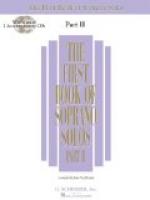“Oh, I just came to Him,” she answered. “And,” as she reflected of that night’s compact, “I gave myself up to Him.”
So that was the way Winifred found Him. Was that the way to “believe”? But Winifred had none of his doubts about God. She believed that He was, and the mental assent led to the heart surrender. But if he should do her act of faith—? If a man with doubts should give himself up would he be received? With such reflections Hubert went out into his day’s work.
Again he accomplished the day’s business with faithfulness to all details, but with the consciousness every hour of a perplexity unsolved—a burden unlifted. Again he was glad when the office door closed behind him and he turned his face homeward, striding beneath his umbrella through the now settled rain, with the Greek Testament grasped in his hand.
An attractive wood fire burned in the drawing-room grate that evening, but Hubert resisted its invitation and retired to his “scientific den,” as Winifred called it, to pursue his new studies. He set himself to read again in the Greek that which he had read in English. He was struck by the fact that the word translated “believe” was also rendered “commit” in a passage in the second chapter. That seemed somewhat more practical to his apprehension.
He lingered long on the interview with Nicodemus, and as the rain beat upon the roof and window pane he listened to the words uttered on a Judean night, so long ago, to a man who like himself sought the truth. In the first chapter of the Gospel, in its introduction, he had caught a glimpse of infinite stretches and light unapproachable, and it seemed no marvel that a man, if he would enter that kingdom, must be born into it! Marvel, indeed, it might be, that such a birth were possible, but not that it was needful. For how could he transgress the boundaries of the human sphere into which he had been born, and lift himself into the higher? It was impossible. No, that life must somehow come forth to him. He must be “born from above.”
As he read on into the book, still bearing in mind the character ascribed to Jesus Christ in its beginning, he could not wonder that He spoke with such authority. Not “Thus saith the Lord,” but “Verily, verily, I say unto you,” the new Prophet declared. What wonder, if He were such a Being as described, that He should offer living water to the Samaritan woman, since “in Him was life,” nor that “the work of God” for obtaining eternal life should be narrowed down to a belief in—a committal unto—Himself?
As he considered these things, the emphasis shifted from “believe” to the Person in whom to believe; and it seemed to him that the teaching must be not so much that faith was in itself a way of salvation, as that it was a simple necessity to the taking of the Way—the One sent forth from God; in short, that its own value was purely relative to the One believed in. This seemed to settle a very important question, and drew the sceptic’s attention away from his own capabilities of belief to the claims of the proposed object of his faith. He read His words with an interest that was painfully intense, and almost groaned his prayerful longing to know if they were true.




